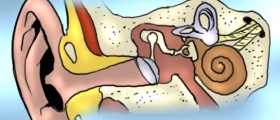
Vertigo is a phenomenon which can be best described as sensation of spinning, even while standing still. Thus, vertigo patients are supposed to endure this sensation often, making their lives significantly harder and more complicated. Thus, it is best to seek medical attention as soon as possible in these situations. However, do not drive to the medical facility on your own. Rather, have someone take you there.
A primary care doctor can diagnose your condition and direct you to a specialist if necessary. He/she will also provide you with medications which can deal with some of your symptoms, making your life easier.
The Balance of Our Body
Balancing and orienting in space is quite a complex process our body has to take care of. Our inner ears keep track of our motion, noticing changes each time we turn or change our body position. This process is combined with the information our brain receives from our eyes, which detects motion as well. Additionally, the pressure receptors in our skin, joints, spine and other body parts, inform the brain of the part of our body being on the ground or getting in contact with some other surfaces.
Since these different information come to our brain all at once, the central nervous system needs to process the data and make it more understandable and coordinated. Once the messages make no sense or get in conflict with each other, conditions like motion sickness and vertigo take place.
Reasons behind Vertigo
Sometimes anemia or low heart function levels can lead to vertigo, due to the fact that one's brain is not receiving enough blood. Poor circulation can also be triggered by excessive salt in a person's diet. Stress, anxiety, frustrations and tension can lead to vertigo too.
Our inner ear needs enough blood to function properly. If it fails to receive adequate amounts of blood, vertigo may affect us, since the inner ear is very sensitive to changes of this type. Sometimes, direct injuries to the skull, including fractures, may lead to nausea, vertigo and hearing loss. During the recovery period, the dizziness is likely to prevail for several weeks.
There are cases where infections are behind vertigo. For example, common flu or cold can attack the nerve connections in our inner ear, triggering vertigo, but, fortunately, leaving our hearing intact. Some people experience vertigo when exposed to specific allergens. Others have this condition connected with other, underlying, neurological diseases like syphilis, multiple sclerosis or tumors.
Special Yoga poses and disciplines can better one's balance and posture significantly, presenting a successful treatment for vertigo and dizziness. Yoga can balance the nervous system and the balance centers in our inner ear, boosting our concentration and removing vertigo.

















Your thoughts on this
Loading...